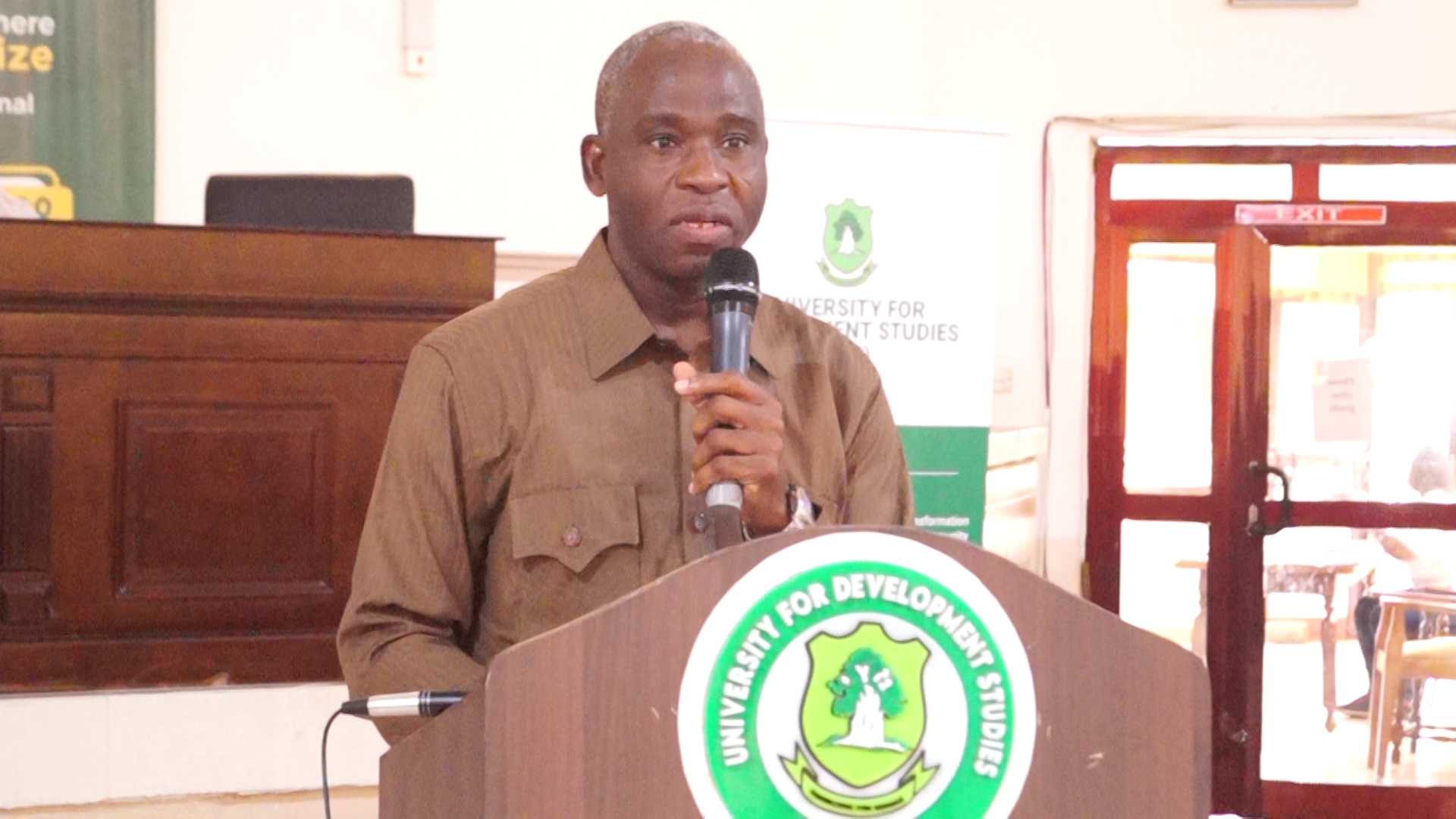News
Venture into the energy sector to manage unused power from solar systems – VC to young women.
Published
5 months agoon
By
Abukari Alhassan Baba
The Vice-Chancellor of the University for Development Studies(UDS), Professor Seidu Alhassan has urged women to venture into the energy sector to manage unused power from solar systems.
He noted that there are challenges of inaccessibility and inadequate skilled manpower to support the adoption of solar technology and how to manage unused power from solar systems in the Northern region.
He said that Over 50% of Ghana’s population are women, and they are important energy consumers in their household management which would help to reduce the cost of electricity consumption when solar energy is adopted.
He said this at a workshop to launch its Solar Girls Project organised by the University’s Energy Technology Center (ETC) on Tuesday, October 31, 2023.
This workshop was sponsored by GIZ to provides the opportunity for stakeholders to contribute to the curriculum of the Solar Girls Project.
The three-day workshop seeks to brought stakeholders to deliberate on how to make solar energy more accessible and affordable Sustainable Development Goal(SDG) 7 in the Northern part of Ghana.
The Solar Girls Project seeks to train girls of legal age to be solar technicians and developers of solar technology and contribute to the government’s efforts towards reducing unemployment in the country and achieving the government’s Science, technology, engineering, and mathematics(STEM) goal.
In a speech read on his behalf by the Senior Lecturer at the Department of Applied Economics, Paul Kwame Nkegbe said Ghana has suffered power outages for many years due to heavy reliance on the national grid.
He noted that solar energy potential is enormous in Ghana and should take advantage to utilise the energy system and provide solar energy to ourselves.
“Northern region is one of the warmest regions in Ghana with an average daily high temperature of about 34 degrees Celsius and sunshine hour per day is estimated to be about 9 hours with solar radiation in Ghana mainly from 46-kilowatt hour per metric tons,” he said.
He explained that the Northern part of Ghana has more potential to fully enhance solar energy for several benefits, including sources for small-scale industries and agricultural purposes.
He stated that when women venture into the sector in addition to the already existing ones it would go a long to reduce the economic burden on their household and the country at large.
The Vice Dean of Students, Dr. Linda Dari said that there has been a growing interest in the adoption of solar technology in Northern Ghana, and an emerging trend has been the active involvement of women in this transformative process.
She added, that harnessing clean and renewable energy sources is crucial for addressing energy poverty and promoting sustainable development in the region.
“Northern Ghana is known for its vast potential in solar energy resources, with abundant sunlight throughout the year,” she said.
Dr. Dari noted that solar technology adoption has the potential to bring significant economic, social, and environmental benefits to communities in Northern Ghana. However, women’s participation in this process is often limited, which can result in missed opportunities and unrealised benefits.
She explained that providing females with access to affordable and reliable solar energy can reduce their reliance on expensive hydropower, liquified petroleum gas, and unreliable traditional energy.
“Women are often responsible for caring for children and the elderly, and
providing them with access to reliable and affordable solar energy can improve the quality of time they spend with the family and also prevent certain diseases, resulting from smoke, dirt, and debris under the fingernails when using firewood, charcoal, organic waste, or kerosene lamps,” Dr. Dari said.
She averted that women’s participation in solar technology adoption can help to promote gender equality and equity and empower women in their communities.
The Energy Advisor of GIZ under Sustainable Energy for Climate Protection in Ghana’s project, Isaac Opoku Manu said that the energy sector plays a vital role in poverty eradication, economic growth, and sustainable infrastructure development in the country.
He noted that promoting women in the field of solar energy would help achieved the objective of the Agenda 2030 and the Sustainable Development Goal.
Mr. Manu stated that the Solar Girls project is crucial to bridge the gap that exists in the renewable energy sector.
Source: Abukari Alhassan Baba



Mahama leads NDC to mourn with Kufuor over wife’s passing
Former President John Dramani Mahama on Wednesday, October 4 led a delegation from the National Democratic Congress (NDC) to visit...


Former First Lady of Ghana Theresa Kufuor reported dead
The former First Lady of Ghana and wife of Ghana’s former President, John Agyekum Kufour, Mrs Theresa Kufuor has been...


The most powerful tool for change is the right to vote – Mahama
The 2024 flagbearer of the National Democratic Congress (NDC), John Dramani Mahama, is rallying Ghanaains who have grown disillusioned with...


PFJ was a mere state resource looting platform – Minority
The Minority has descended heavily on the Akufo-Addo-led government for launching a second phase of the flagship Planting for Food...


ECOWAS is desecrating Ghana
The Director of Legal Affairs of the National Democratic Congress (NDC), Mr Abraham Amaliba has said the Economy Community of...


Prof Gyampo elected President of UTAG, University of Ghana branch
A Senior Lecturer at the Political Science Department of the University of Ghana (Legon), Prof Ransford Gyampo have been elected...






